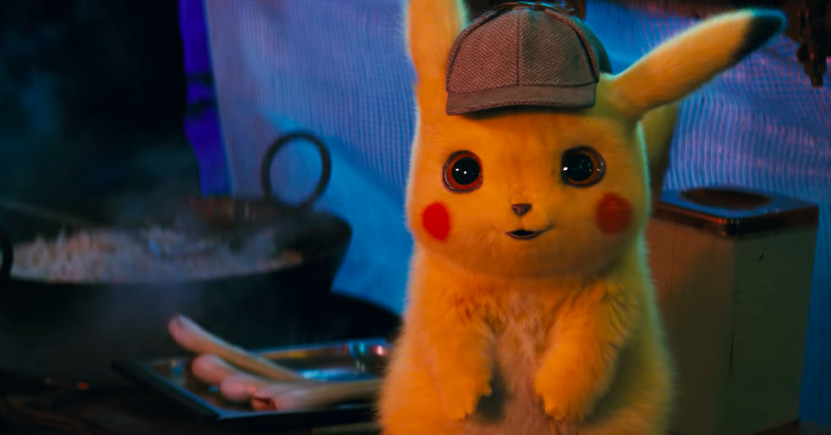Pokémon’s spinoffs are the series at its most adventurous
Source: The Verge added 23rd Feb 2021Pokémon is a phenomenon, one that’s lasted a steady 25 years built on a foundation of approachable roleplaying games. On the DS, Nintendo’s bestselling piece of hardware, three of the top 10 bestselling titles are mainline Pokémon games. It’s a franchise that perpetually serves as a system seller despite (or perhaps because of) the fact that it evolves at a glacial pace. But that’s only true of the core Pokémon experience. While those RPGs have been infamously resistant to change, the many, many Pokémon spinoffs are a different story. In fact, many of Pokémon’s biggest success stories, from the blockbuster film Detective Pikachu to the staggering success of Pokémon Go, were a result of this experimental attitude.
Without these offshoots, Pokémon wouldn’t be what it is today — and they’re still helping push the series into the future.
It didn’t take long for Nintendo to start testing the waters. Just a few years after the breakout success of Red and Blue on the Game Boy in 1996, the company released Pokémon Stadium on the Nintendo 64. It retained the same core idea of cute monsters battling against each other, but simplified the action while adding 3D graphics, a big step up from the monochrome 8-bit visuals of the originals. It was a change but still pretty familiar territory for fans, whether they came from the Game Boy games or the animated series.
Soon, though, the spinoffs would explore new territory. One of the most beloved Pokémon games is Snap, essentially a wildlife photography simulator, where players go on a safari to capture images of their favorite monsters. It tapped into something the main games didn’t, with a less competitive kind of experience that was welcoming to new players. Subsequent spinoffs went in a similar direction.
Games like Pokémon Pinball, Puzzle Challenge, and Hey You, Pikachu! all took the familiar world and characters but transported them into completely new genres (and in the case of the latter, adding then-rare voice controls). Much like the still-running Pokémon animated series, these games created new entry points for potential fans, easing them into the fictional universe. It’s a strategy that’s now commonplace, used by everyone from Disney to Riot Games. But in the late ‘90s, it was a novel approach.
This strategy continued over the ensuing decades. There were fighting games (Pokkén Tournament), narrative adventure games (Detective Pikachu), strategy games (Pokémon Conquest), and puzzle crossovers (Pokémon Picross), to name a few. At times, these games could seem almost bizarre — try playing a Tekken-style fighter with Pikachu dressed up in a wrestling costume, or one where the electric rat can’t stop drinking coffee — but they pushed the boundaries of what a Pokémon game could be. (Detective Pikachu would go on to spawn the top-grossing video game movie of all time.) They also allowed the series to hit lots of different platforms. Initially, that was limited to Nintendo consoles and handhelds, but as soon as the franchise debuted on mobile, it changed dramatically.
Things started out rather inauspiciously, with the debut of Pokémon Shuffle in 2015, essentially a Pikachu-themed Candy Crush clone. But it helped lay the groundwork for the franchise on smartphones. And just one year later, things would explode. Niantic Labs, then a relatively small studio known for a sci-fi location-based game called Ingress, launched a take on Pokémon that was perhaps the most successful marriage of game type and fictional universe. It allowed players to go out in the real world to find and capture pocket monsters on their phone.
We all know what happened next: Pokémon Go became a global phenomenon, setting app store records and becoming the rare game that could make millions of players leave the house and exercise, all for the chance of catching virtual creatures. It would be years before any true competitors launched, and none have been anywhere near as successful. Today, Pokémon Go is still one of the biggest mobile games in the world. In many ways it reinvigorated the franchise, boosting the sales of older titles and influencing the design of subsequent ones.
Since then, releases have become arguably even more surprising, with everything from a café management game to a mobile app to help players brush their teeth. And soon the franchise will aim for new territory yet again with Pokémon Unite, a competitive multiplayer game that looks like League of Legends, except with Charmander and Squirtle. It gives Pokémon an opportunity to tap into the burgeoning world of competitive gaming and, once again, potentially reach a whole new audience that has never touched a mainline Pokémon RPG before.
And after that? Well, Pokémon will attempt to breach the one space games have yet to venture: sleep.
brands: ACTION AIM Built Core Disney Experience It League of Legends Mobile New Nintendo One other Pokémon Riot SNAP Space the game WAS media: 'The Verge' keywords: App Games Gaming Mobile Phone
Related posts
Notice: Undefined variable: all_related in /var/www/vhosts/rondea.com/httpdocs/wp-content/themes/rondea-2-0/single-article.php on line 88
Notice: Undefined variable: all_related in /var/www/vhosts/rondea.com/httpdocs/wp-content/themes/rondea-2-0/single-article.php on line 88
Related Products
Notice: Undefined variable: all_related in /var/www/vhosts/rondea.com/httpdocs/wp-content/themes/rondea-2-0/single-article.php on line 91
Warning: Invalid argument supplied for foreach() in /var/www/vhosts/rondea.com/httpdocs/wp-content/themes/rondea-2-0/single-article.php on line 91
